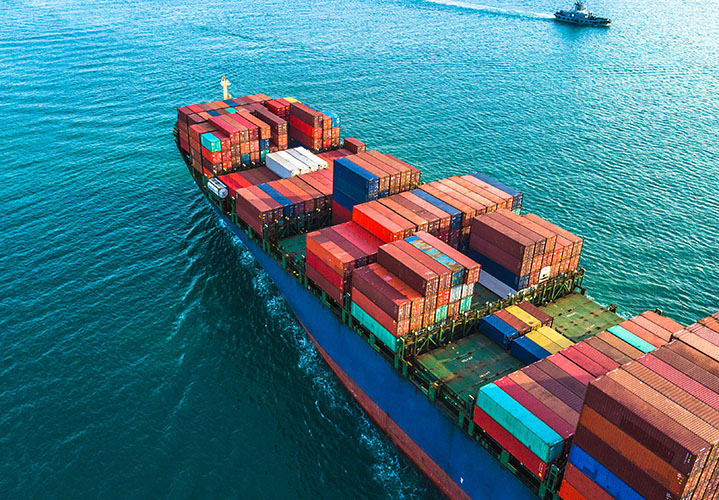Incoterms 2020 came into force on 1 January 2020, replacing Incoterms 2010. Below is a summary of the substantive changes brought in by Incoterms 2020.
What are Incoterms?
Incoterms are a set of internationally recognised rules that define the responsibilities of buyers and sellers for the delivery of goods under contracts of sale. Broadly, Incoterms describe:
- Obligations: what buyers and sellers have to do.
- Risk: where and when sellers are deemed to have delivered goods.
- Costs: what costs buyers and sellers are responsible for.
Incoterms are not a replacement for a sale contract however, as they do not address a number of key areas, including:
- Transfer of title to goods.
- Whether there is a contract of sale in existence.
- The specification of goods sold.
- The time, place, method or currency of payment of the price.
When do Incoterms apply?
Incoterms do not apply to all sale contracts, and must be expressly incorporated in order to apply. Such express incorporation should set out:
- The chosen incoterm rule e.g. CIF.
- The name port or place of delivery e.g. No 123, ABC Street, Importland.
- Which version of Incoterms apply e.g. Incoterms 2020.
What is new in Incoterms 2020?
Change in three-letter initials from DAT to DPU
The rule known as DAT (Delivered At Terminal) under Incoterms 2010 has been renamed DPU (Delivered at Place Unloaded) under Incoterms 2020. This change is to reflect the reality that the place of delivery may not necessarily be a terminal.
In light of this change, should the proposed place of delivery not be a terminal, the seller should ensure that it is possible to unload goods at the chosen site.
Arranging for carriage with seller’s or buyer’s own means of transport in FCA, DAP, DPU and DDP
Incoterms 2010 assumed that where goods were to be carried by a seller to a buyer, the parties would instruct a third party carrier. This did not allow for circumstances where the buyer or seller would use their own transportation, without the need to engage a third party carrier. Consequently, rules FCA, DAP, DPU and DDP now allow buyers/sellers to either make a contract of carriage with a third party, or more simply arrange for the necessary carriage.
Where costs are listed within Incoterms 2020
Under Incoterms 2010, the allocation of costs between buyer and seller appeared at different parts of each Incoterm rule. However under Incoterms 2020, all cost allocations now appear at A9/B9 of each rule (albeit the costs also appear under the relevant article to which they apply e.g. the costs in obtaining documents are set out at both A6/B6 and A9/B9 of the FOB rule). The purpose of this consolidation, is to provide buyers and sellers with an exhaustive list of costs in one place.
Different levels of insurance cover in CIF and CIP
The minimum level of insurance covered required for both CIF and CIP under Incoterms 2010 was that provided by Clauses (C) of the Institute of Chicago Clauses.
Under Incoterms 2020 however, whilst the minimum level of insurance cover required by CIF remains that provided by the Institute of Chicago Clauses (C), the minimum level of insurance cover required by CIP must now be that required by the Institute of Chicago Clauses (A) (being “all risks” insurance). It should be noted however that the buyer and seller can vary the level of insurance cover for either CIF or CIP.
Bill of lading with an on-board notation (FCA- Free Carrier)
Where goods are sold FCA for carriage by sea, the parties (or their banks) often require a bill of lading with an on-board notation. However, given delivery is completed before goods are loaded onto the vessel when sold FCA for carriage by sea, the seller may not always be able to obtain an on-board bill of lading from the carrier.
Consequently, FCA now allows the parties to agree that the buyer will instruct its carrier to issue an on-board bill of lading to the seller, once the goods have been loaded onto the vessel. The seller would then be obliged to tender that bill of lading to the buyer (or its bank).
Regardless of whether this optional mechanism is exercised, the seller will have no obligation to the buyer in respect of the contract of carriage.
Explanatory Notes for Users
The ‘Guidance Notes’ at the beginning of each rule under Incoterms 2010 have been expanded, and now appear as ‘Explanatory Notes for Users’. These notes can be used (a) to inform users which rule is most appropriate to use for a particular transaction, and (b) to provide guidance on areas which may require interpretation.
Inclusion of security-related requirements within carriage obligations and costs
Incoterms 2010 introduced certain security requirements, however under Incoterms 2020 these provisions have been expanded, with each rule now setting out an express allocation of security related obligations.

 Beverley Flynn
Beverley Flynn